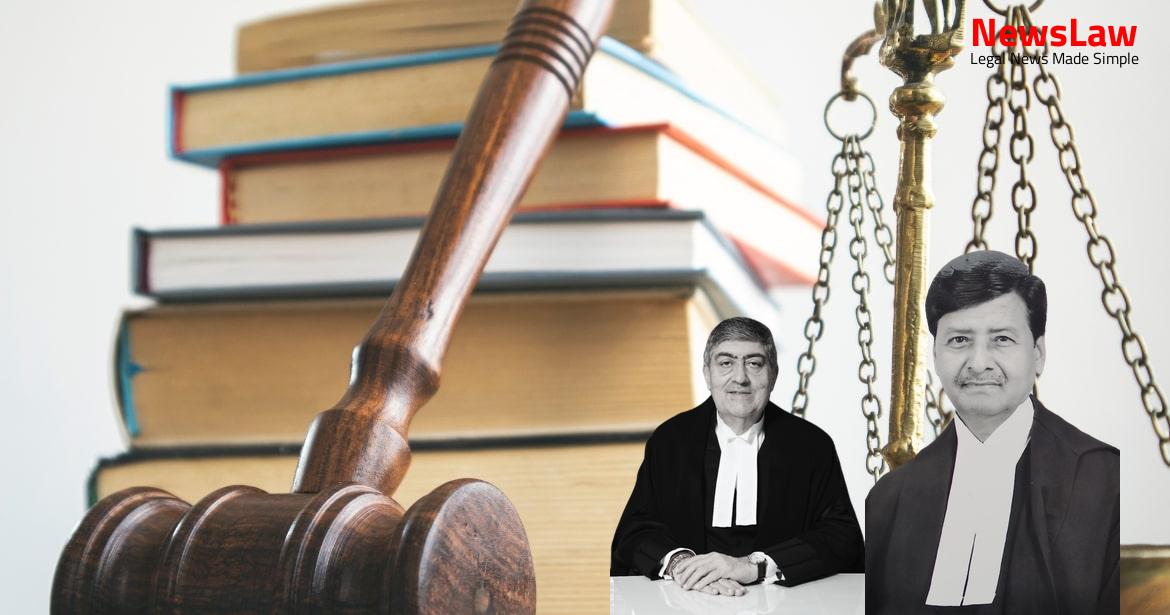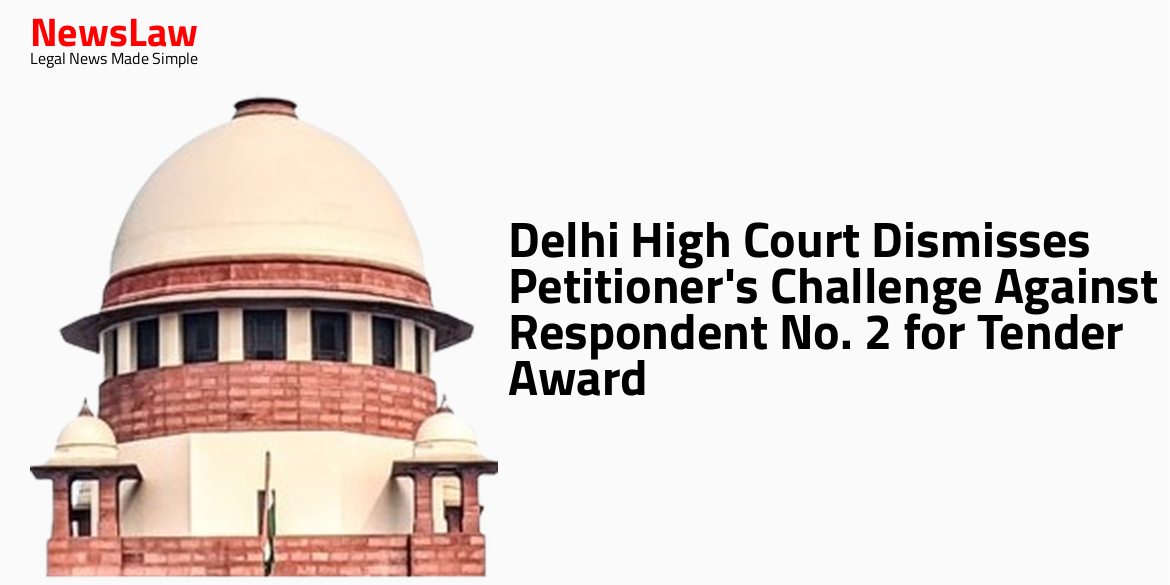Delve into the nuanced legal analysis of ex post facto environmental clearances in a recent case where the NGT examined the validity of providing such clearances. The complex legal considerations and implications regarding environmental protection and compliance with regulations are explored in this examination.
Facts
- NGT held that the law does not allow ex post facto clearances.
- The circular of 14 May 2002 was considered an internal communication and did not override the EIA notification of 1994.
- The NGT issued directions including revoking ECs, closing down activities operated without a valid EC, imposing compensation of ₹ 10 lakhs per unit, and using the deposited amount for environmental restoration in Ankleshwar, Gujarat.
- The private respondents affected by the directions were United Phosphorous Ltd, Unique Chemicals, Darshak Private Limited, and Nirayu Private Limited.
- The case was transferred to the Western Zonal Bench of the NGT by the High Court of Gujarat on 21 April 2015.
- The EIA notification of 1994 mandated prior Environmental Clearances for setting up and expansion of industrial projects falling within thirty categories.
- A public hearing was not mandatory under the EIA notification of 1994, but became mandatory for certain activities after an amendment in 1997.
- The circulars issued by the MoEF and GPCB extended deadlines for obtaining Environmental Clearances for units set up without prior ECs.
- NGT issued directions revoking environmental clearances for units operating without valid consents, leading to legal challenges.
- Various industrial units, including pharmaceutical manufacturers, were involved in the legal proceedings regarding compliance with environmental regulations.
Also Read: Legal Analysis on Arbitration Petition Limitation Period
Issue
- Adjudication on the validity of providing ex post facto EC to industrial units via a circular dated 14 May 2002.
- Investigation into whether this provision aligns with the requirement of a prior EC under the EIA notification of 1994.
Also Read: Analysis of High Courts’ Jurisdiction and Court Orders Under Article 142
Arguments
- Mr Kapil Sibal, representing Alembic Pharmaceuticals Limited, argued that the EIA notification of 27 January 1994 does not explicitly mention the term “prior” but still requires a prior EC based on the language used.
- Mr Sibal’s argument was refuted by Mr ANS Nadkarni, who asserted that the requirement for a prior EC is clearly stated in the notification.
- Mr C U Singh, representing United Phosphorus Limited, highlighted a circular from 5 November 1998 extending the deadline for obtaining ECs under the 1994 notification and argued that the need for a prior EC was not mandatory under the 1994 notification but was under the 2006 notification.
- The jurisdiction of the NGT to strike down regulations under the Environment Protection Act 1986 was questioned in light of the decision in the Sterlite case, emphasizing that the NGT cannot strike down rules or regulations made under the Act.
- The circular dated 14 May 2002 extending the deadline for certain units to avail of ex post facto clearance was defended on the basis of the MoEF’s powers under Section 3 of the Environment Protection Act 1986.
- The concept of an ex post facto EC is against fundamental principles of environmental jurisprudence
- Ex post facto EC is not in line with the EIA notification dated 27 January 1994
- As per the judgment in Common Cause, ex post facto EC is detrimental to the environment and could cause irreparable degradation
Also Read: Electoral Malpractices in Mayor Election
Analysis
- The three industries, Alembic Pharmaceuticals Limited, United Phosphorus Limited, and Unique Chemicals Limited, operated without environmental clearances for several years after the EIA notification of 1994.
- All three industries subsequently received environmental clearances, including amended ones for capacity expansions.
- The exemption under Clause 8 of the explanatory note to the EIA notification of 1994 did not apply to any of these industries based on the disclosed permissions, consents, and authorizations timeline.
- The circular dated 14 May 2002 allowed defaulting industries to obtain ex post facto clearances, contrary to the EIA notification of 1994, and did not encourage compliance with environmental norms.
- The NGT’s direction for the revocation of ECs and closure of units was deemed disproportionate in this context.
- Substantial investments and workforce employment by the industries were factors considered while determining consequences for their failure to obtain ECs before operation.
- The environmental impact of the industrial activities without ECs, especially in the Ankleshwar area where the industries are located, is highlighted as critical.
- The importance of complying with procedural steps like public hearing, screening, scoping, and appraisal is stressed for environmental protection.
- The necessity for prior environmental clearances, as mandated by the EIA notification of 1994, to prevent adverse environmental impacts and ensure sustainable development.
- The legality of an ex post facto public hearing was upheld in Lafarge Umiam Mining Pvt Ltd v Union of India
- NGT’s adjudicatory functions under the National Green Tribunal Act 2010 were analyzed after referring to the Sterlite case
- Circulars extending time for obtaining ECs were noted in the Goa Foundation v Union of India case
- Ex post facto clearances for limestone mining projects in Meghalaya were upheld in Lafarge Umiam Mining Private Limited v Union of India
- NGT cannot strike down rules or regulations under the Environment Protection Act 1986 as held in a case by Justice R F Nariman
- Ex post facto clearances were upheld in Lafarge case despite alleged suppression by the project proponent
- The involvement of native tribals and due diligence by MoEF in environmental impact assessment were considered in the decision
- Validity of an EC granted without a public hearing was addressed in Electrotherm (India) Limited v Patel Vipulkumar Ramjibhai
- The Court acknowledges the environmental degradation caused by the three industries operating without valid Environmental Clearances (ECs).
- Legal consequences for the breach by the industries are necessary.
- Instead of the NGT’s directions, the industries are directed to deposit compensation of ₹ 10 crores each.
- While revocation of ECs and closure of industries was deemed unwarranted, compensation is ordered to preserve the environment based on the precautionary principle.
- Penalties must be imposed for disobeying the legal regime.
- The compensation amount is mandated for restitution and restoration of the environment.
- The industries cannot evade liability for non-compliance with obtaining ECs.
Decision
- Alembic Pharmaceuticals Limited, United Phosphorous Limited and Unique Chemicals Limited are directed to deposit the compensation amount with GPCB for environmental restoration and remedial measures.
- The deposit should be made within four months from the receipt of the certified copy of the judgment.
- The deposited amount is in addition to any amount directed by the NGT.
- The directions are issued under Article 142 of the Constitution.
- The appeals are allowed, and the NGT’s judgment directing revocation of ECs and closure of industries is set aside.
- Pending applications, if any, are disposed of.
Case Title: ALEMBIC PHARMACEUTICALS LTD. Vs. ROHIT PRAJAPATI . (2020 INSC 326)
Case Number: C.A. No.-001526-001526 / 2016



